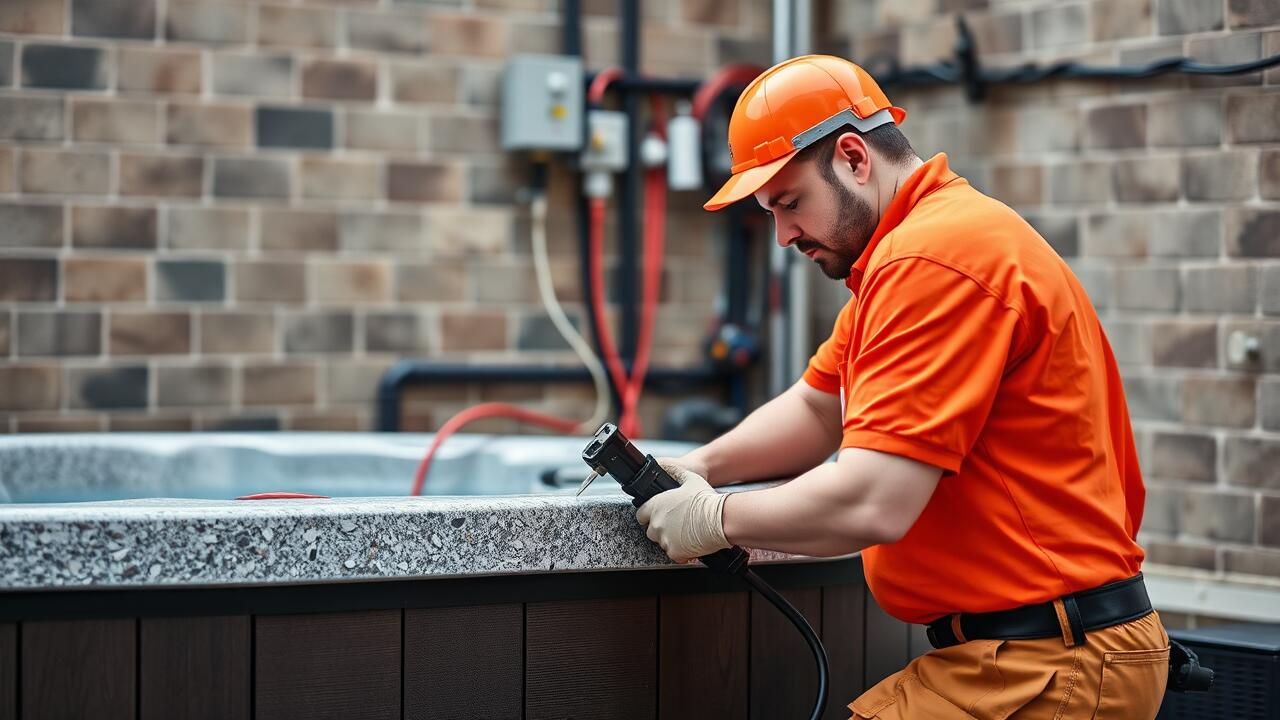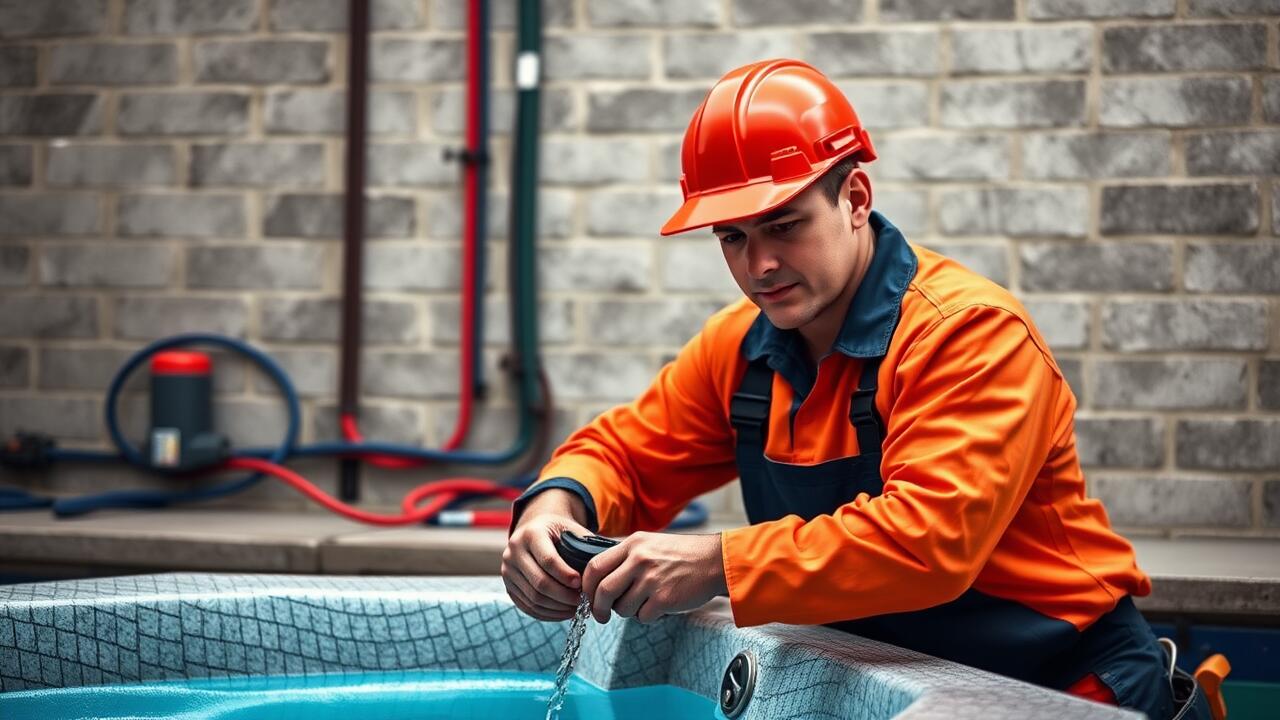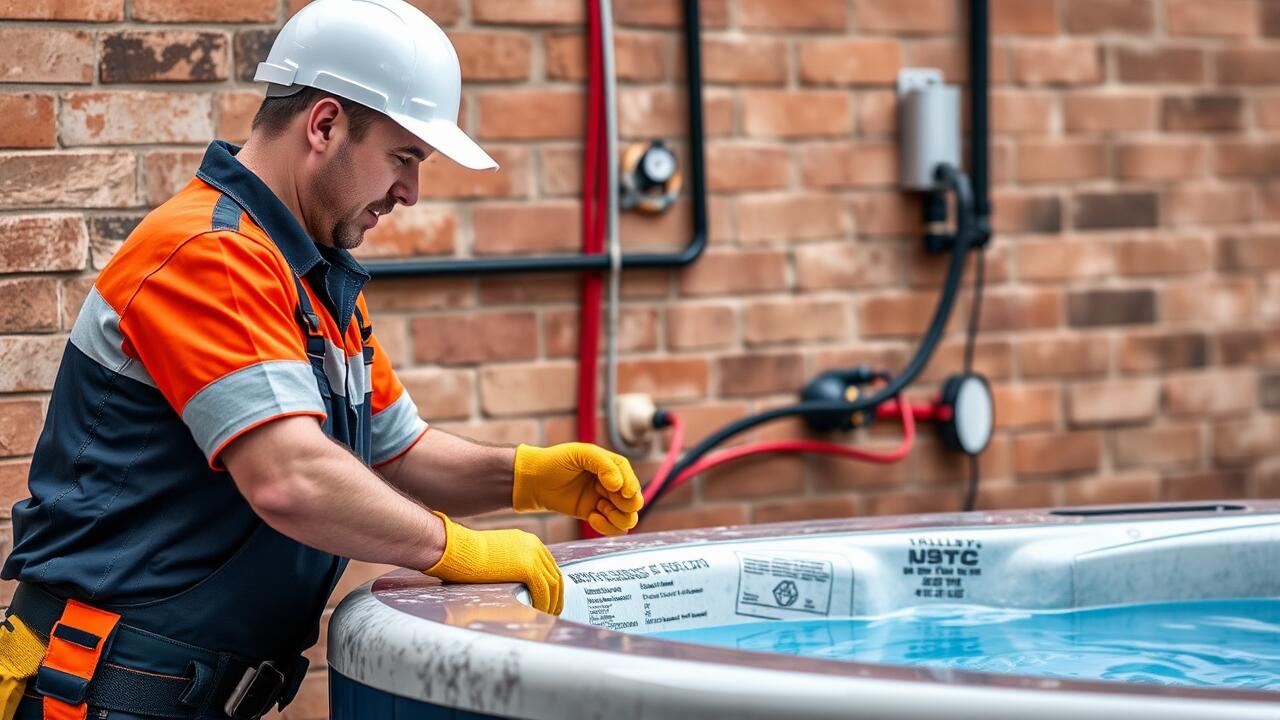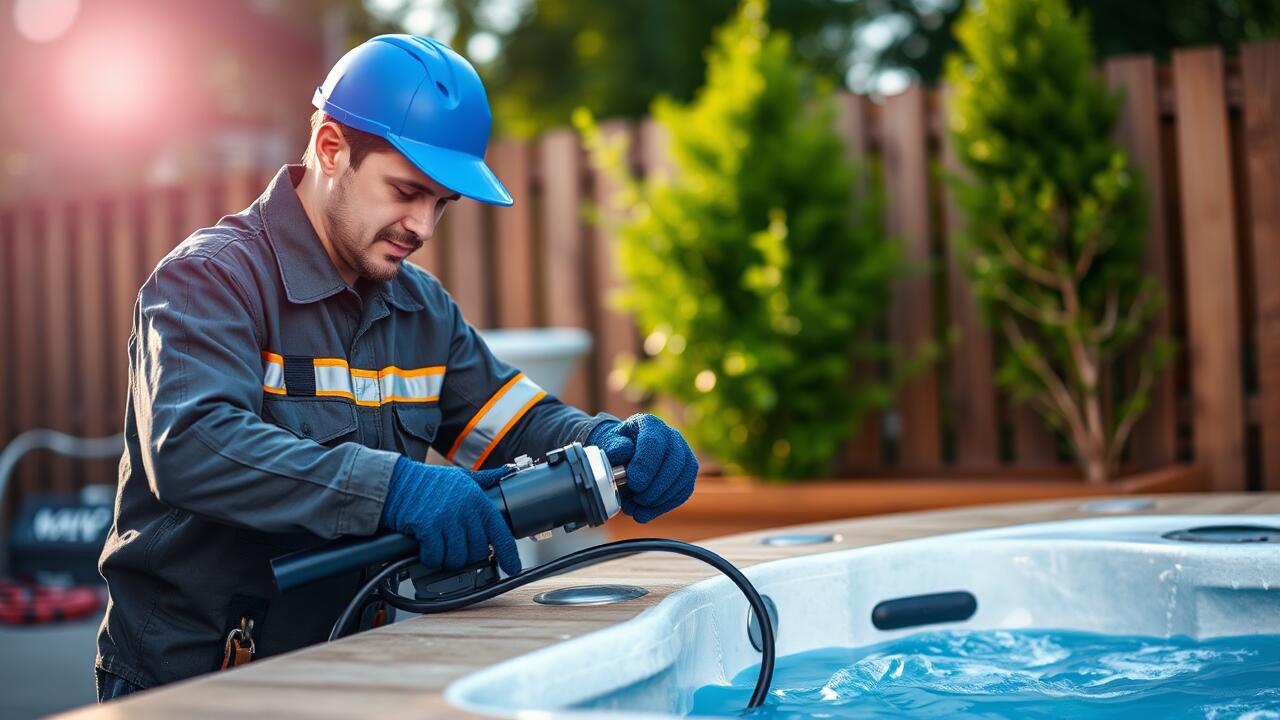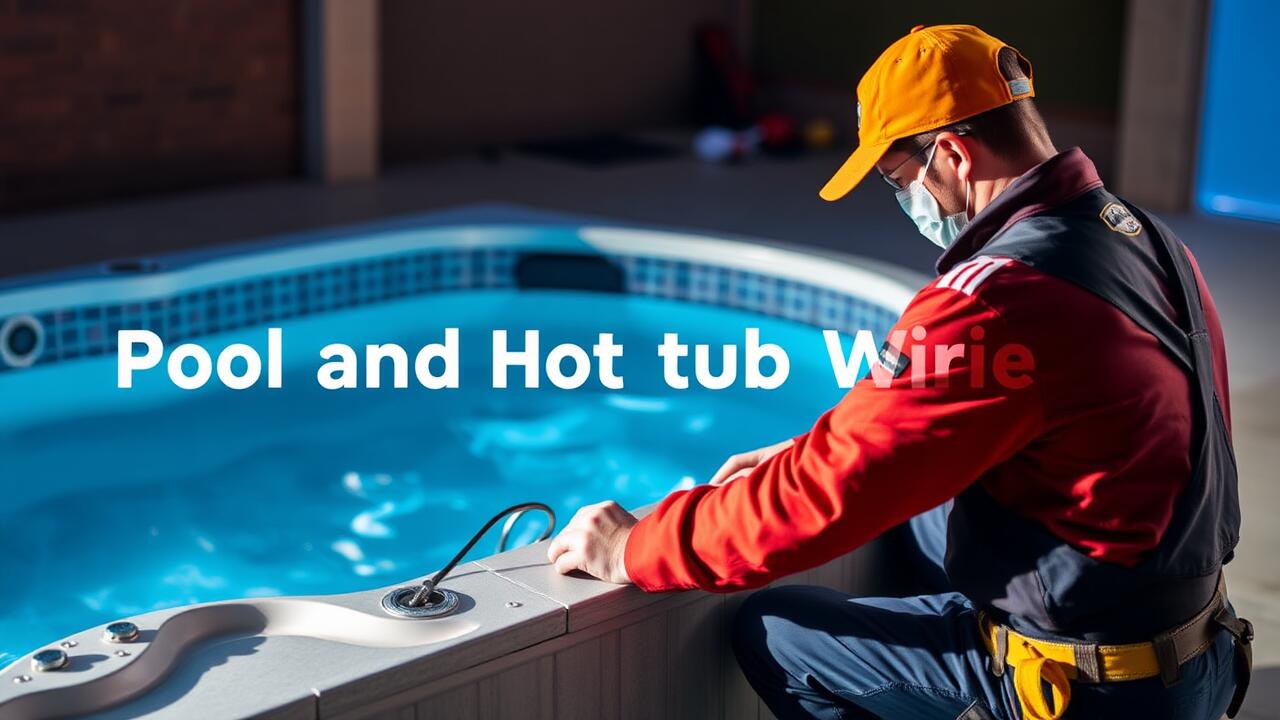
Role of Ground Fault Circuit Interrupters (GFCIs)
Ground Fault Circuit Interrupters (GFCIs) play a critical role in protecting users from electrical shock in wet environments such as pools and hot tubs. These devices monitor the flow of electricity and can detect imbalances that may occur when there is a fault, such as water coming into contact with electrical components. Upon identifying a fault, GFCIs shut off the electrical circuit in milliseconds, significantly reducing the risk of serious injury or electrocution. Ensuring that GFCI protection is installed in accordance with local electrical codes is essential for safe operation.
In areas like Greater Heights, Houston, the adherence to GFCI requirements becomes even more crucial due to the humid climate and the frequent use of water features in residential settings. Proper installation and functioning of GFCIs help ensure that pool and hot tub wiring remains safe, protecting not only the equipment but also the users. Regular inspections should be conducted to verify that GFCIs are working correctly, as any malfunction could lead to dangerous situations. It is vital to consult with qualified professionals familiar with the electrical codes and safety standards applicable to Pool and Hot Tub Wiring in Greater Heights, Houston.
Enhancing Safety with GFCI Protection
Ground Fault Circuit Interrupters (GFCIs) are vital components designed to enhance safety around pools and hot tubs. They function by detecting ground faults, which occur when electrical current escapes its intended path. In such cases, GFCIs cut off the electricity supply within milliseconds, significantly reducing the risk of electric shock. Installing GFCIs in specific locations associated with pool and hot tub wiring in Alief, Houston, provides an extra layer of protection for users, particularly in wet environments where the risk of electrical hazards is heightened.
Moreover, ensuring that GFCIs are correctly installed and maintained is essential for optimal performance. Regular testing of these devices can help ensure they remain operational, providing peace of mind for pool and hot tub owners. An effective GFCI system not only safeguards individuals from potential dangers but also complies with safety regulations, reflecting a commitment to responsible ownership. Keeping GFCIs updated as part of regular maintenance can contribute to overall safety in areas with pool and hot tub wiring in Alief, Houston.
Common Grounding Mistakes to Avoid
Many individuals overlook the importance of proper grounding and bonding when installing pools and hot tubs. A common mistake arises when bonding connections are not securely fastened or improperly sized. This oversight can lead to ineffective grounding, posing safety risks during electrical incidents. Ensuring that all metal equipment has a robust bonding connection is essential for protecting users from electrical shock.
Another frequent error involves failing to follow local electrical codes, particularly for specific regions like Pool and Hot Tub Wiring in Third Ward, Houston. Some installations cut corners by using inadequate grounding conductors or skipping grounding altogether. Such actions can result in serious hazards. Proper adherence to local standards not only enhances safety but also ensures compliance with insurance and liability requirements.
Identifying and Rectifying Grounding Errors
Identifying grounding errors in pool and hot tub wiring is crucial for ensuring safety and compliance with local regulations. Common signs of grounding problems include tripped circuit breakers, flickering lights, and abnormal noise from appliances. Thorough inspections should focus on ground connections at the panel and bonding points at the pool and hot tub equipment. Ensuring that all exposed metal surfaces are properly bonded minimizes the risk of electric shock, which is particularly vital in wet environments.
Rectifying these errors often involves revisiting the installation practices used during the setup of Pool and Hot Tub Wiring in Bellaire West, Houston. Professionals should address loose connections, verify that bonding jumpers are correctly installed, and replace any faulty components. Following best practices for grounding not only helps in compliance with safety standards but also enhances the overall functionality of the pool and hot tub. Regular updates and inspections can help maintain a safe and enjoyable environment for users.
Maintenance of Grounding and Bonding Systems
Regular maintenance of grounding and bonding systems is essential for ensuring the safety and functionality of pools and hot tubs. This involves periodic inspections to verify that all connections remain secure and free of corrosion. Any signs of wear or deterioration should be addressed promptly. These systems work together to provide a safe environment by preventing electric shock and ensuring that any stray electrical currents do not pose a danger to users.
For homeowners in areas like Greenspoint, Houston, adhering to local codes and regulations is crucial. Engaging a licensed electrician experienced in Pool and Hot Tub Wiring in Greenspoint, Houston can significantly enhance safety. They can conduct thorough checks and maintenance of the grounding and bonding systems, ensuring compliance with all safety standards. Regularly scheduled evaluations can help identify potential issues before they become critical, thereby promoting a secure swimming experience for all users.
Regular Checks for Safety Compliance
Regular maintenance of grounding and bonding systems is crucial for ensuring safety around pools and hot tubs. Regular checks help to identify any potential issues that could compromise the safety of users. By inspecting the grounding connections and bonding straps, homeowners can prevent accidental shocks and electrical failures. This practice not only enhances safety but also prolongs the lifespan of the wiring components.
In areas like Third Ward, Houston, where environmental factors can impact electrical systems, it's important to remain vigilant. Seasonal changes or heavy rainfall can affect the integrity of pool and hot tub wiring. Conducting routine inspections can spot corrosion, loose connections, or damage to insulation. Ensuring that these components are consistently in good condition supports compliance with safety regulations and protects those who enjoy using these recreational amenities.
FAQS
What is the purpose of grounding and bonding in pools and hot tubs?
Grounding and bonding are essential for electrical safety, helping to prevent electrical shock by providing a safe path for stray currents and ensuring that all metal parts are at the same electrical potential.
How do Ground Fault Circuit Interrupters (GFCIs) enhance safety for pools and hot tubs?
GFCIs enhance safety by detecting imbalances in electrical current and quickly shutting off power to prevent electric shock, particularly in areas where water and electricity may come into contact.
What are some common grounding mistakes to avoid when installing pools or hot tubs?
Common mistakes include inadequate grounding connections, using improper materials, neglecting to bond all metallic components, and failing to adhere to local electrical codes and regulations.
How can I identify and rectify grounding errors in my pool or hot tub?
To identify grounding errors, look for signs like flickering lights, tripped circuit breakers, or electrical shocks. Rectify these issues by consulting a qualified electrician to assess and correct any grounding deficiencies.
How often should I check the grounding and bonding systems of my pool or hot tub?
It is advisable to perform regular checks at least once a year or after any significant changes to the electrical system or pool equipment to ensure safety compliance and proper functioning of the grounding and bonding systems.
